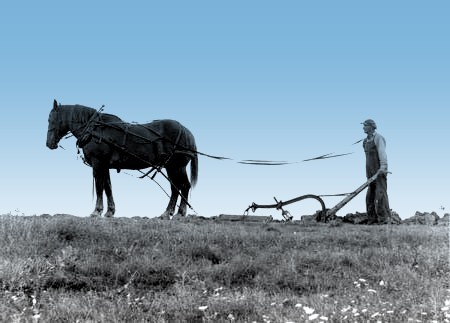Don't Worry About
Collapse

One of the most serious mistakes I made in my earlier considerations of how the converging crisis of energy, ecology and economics might unfold was to see "collapse and dieoff" as a single monolithic, amorphous process in which "the world" would somehow be uniformly affected. This is of course a ridiculously inaccurate perception, unhelpful and paralyzing.
As the inevitable devolution unfolds it will take differing forms in different regions. My current expectation is that it will behave more like a fragmentation than a crash, with some fragments faring well and others poorly. The evolution of the boundaries between those fragments is hard to predict, but it will certainly have much to do with geography, population densities, wealth and resource distributions, cultural distinctions etc.
What this means is that trying to predict the effects of the crisis in any detail is a mug’s game – the outcome in any region will be dependent on far too many imponderables for us to be any more specific than "some greater or lesser amount of more or less bad stuff will happen to pretty much everyone."
We can predict general trends, like a decline in fossil fuel availability, a general increase in electrical grid instability, or increasing difficulties in food production and distribution, but even using this broad a brush there will inevitably be some regions of the world that will be affected very little while other regions get crushed. We might be able to predict some of the winners and losers with greater confidence, but reality has always been known for its capacity to surprise us with unexpected outcomes.
Even the sizes of the fragments will vary enormously, from small enclaves through provinces to potentially entire countries, all depending on local circumstances.
From this perspective it becomes more difficult to see the coming changes as anything other than an acceleration of "change as usual" in the human condition. More regions will be afflicted with decline and disintegration, but such situations are not new to the human experience, though they will become more widespread.
What may be more noticeable to those of us who have participated directly in the globalization of culture and civilization will be the spreading of the separating fractures that push us back down from the heights of global homogeneity we have grown used to. Our horizons will close in; regional differences will become more visible and pronounced. Speaking ecologically, our civilization will slide back towards being a cultural "climax ecosystem" with greater diversity, though less mass.
I’m convinced that the widespread fears about apocalyptic collapse are largely our ego’s fear of annihilation. Our egoic sense of identity is intimately bound up with and defined through the world in its current form. Any possibility that this form might change threatens our egos with instability and the potential for a loss of identity. This gives rise to inchoate and even irrational fear. That fear is in turn exacerbated by the fact that we (certainly most North Americans and Europeans) are utterly unfamiliar with significant hardship.
Ultimately I think we will be able to do very little to solve or mitigate the effects of the coming transformation. Instead we must think in terms of response and adaptation. As I’ve said before, our best personal defenses will be awareness, adaptability and a penchant for realistic, holistic thinking. In other words, we need to develop personal wisdom.
July 30, 2008
©
Copyright 2008, Paul Chefurka
This
article may be reproduced in whole or in part for the purpose of
research, education or other fair use, provided the nature and
character of the work is maintained and credit is given to the author
by the inclusion in the reproduction of his name and/or an electronic
link to the article on the author's web site. The right of
commercial reproduction is reserved.